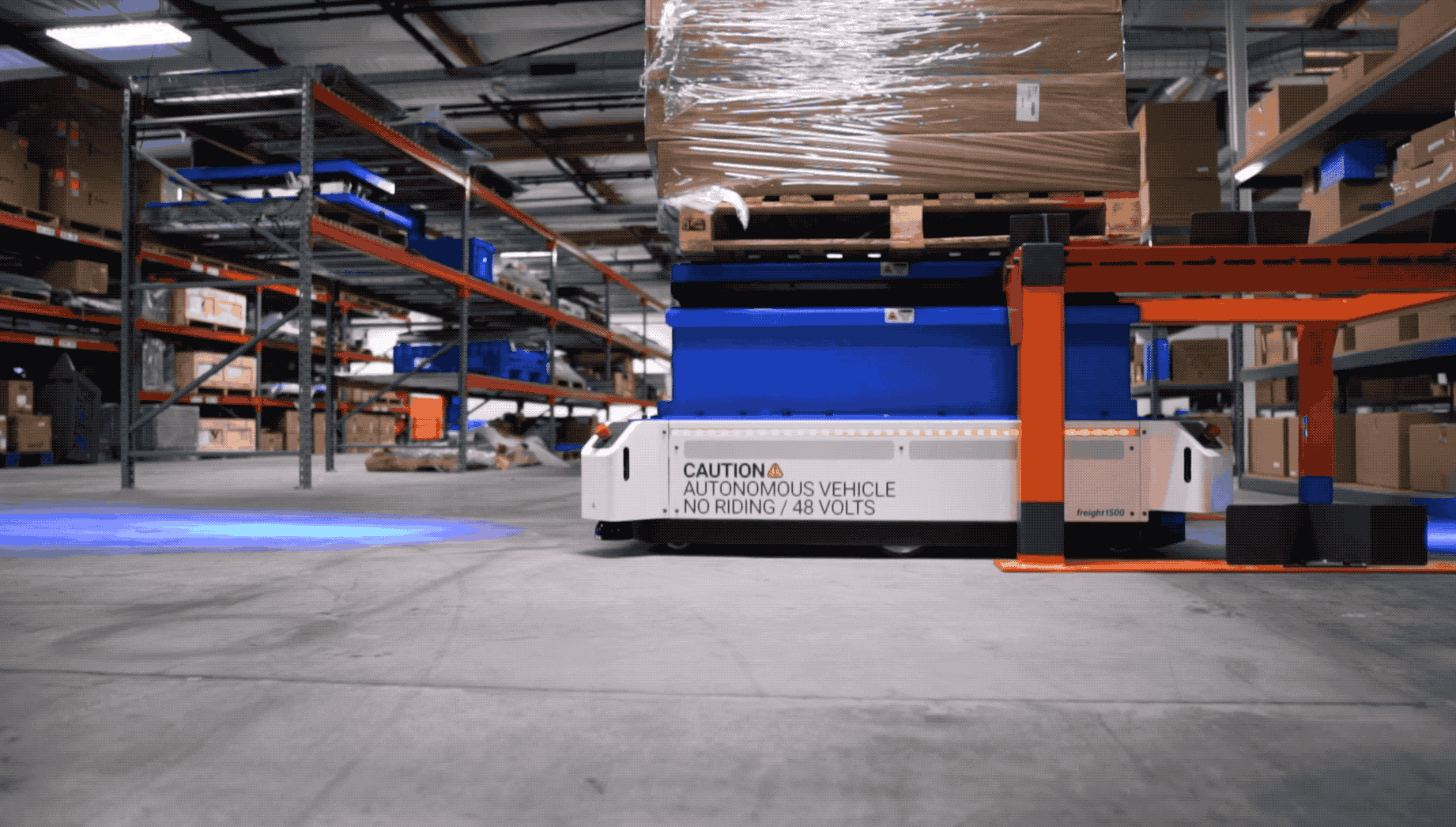San Jose-based robotics company Fetch unveiled its latest robot this morning. The PalletTransport1500 is an autonomous bot designed specifically to replace forklift uses in warehouses. The systems, which are designed to pick up and delivery pallets, are capable of sporting payloads of up to 2,504 pounds.
The device joins a number of different robotic forklift solutions from various companies, including Toyota. Though Amazon’s own Kiva Systems-produced robots are likely still the best-known pallet moving robotics in the game.
The system was developed with Honeywell’s Intelligrated’s Momentum warehouse software. Fetch, of course, already offers a number of different warehouse robotic solutions, building out a kind of autonomous ecosystem. The company’s systems are notable for their relative flexibility over other full-scale solutions.

Per a press release, the new robot is designed to remove humans from the pallet-moving equation. Actions include,
Cross-docking: the AMR can transport pallets directly from inbound to outbound shipment areas. After pallets are unloaded from the truck, the AMR carries pallets routed from the inbound trailers/containers directly to the respective outbound shipping area location.
Returns: once inbound items are sorted based on product type or vendor, the AMR transports pallets to their appropriate return station (inventory, recycle, charity, etc.)
Warehouse transport: after received products are unloaded and palletized, the AMR moves inventory to storage locations based on business needs
This product category was no doubt one of its most highly demanded, given the fairly common occurance of forklift-related accidents. Per numbers from OSHA, “forklifts cause about 85 fatal accidents per year; 34,900 accidents result in serious injury; and 61,800 are classified as non-serious.” That’s a pretty big source of workplace accidents. The agency adds if you assign one accident per machine, that means somewhere in the neighborhood or 11% of U.S. forklifts are involved in an accident.
In addition to these concerns, COVID-19 related shutdowns have no doubt made the move toward automated fulfillment systems all the more compelling over the past year.
from TechCrunch https://ift.tt/3iVq6lJ
via IFTTT
Comments
Post a Comment